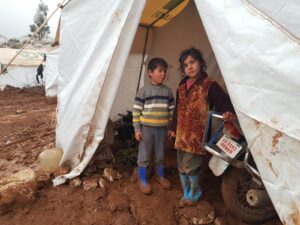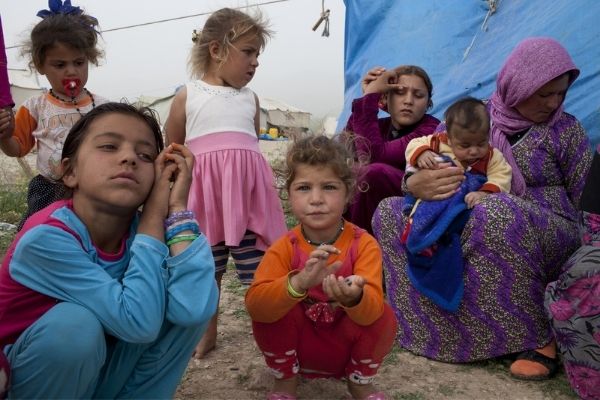Zakat Assistance
Zakat Assistance

We at Sunrise-USA consider your Zakat payment as an Amanah (a trust), and we ensure delivering it to support those most in need. The Zakat contributions we receive have helped many thousands of needy families, orphans, and widows since 2012. Below you will find quick answers to frequently asked questions about Zakat that will help you understand this type of charity and calculate your Zakat due.
Syrians are in desperate need of food, shelter, and winter aid. With your Zakat contributions, Sunrise-USA works tirelessly to assist needy families displaced inside Syria. The poor and needy make up the top recipients of your Zakat. When you pay your Zakat through Sunrise-USA, you are sending your charitable giving directly to orphans, widows, refugees, and those displaced who are most vulnerable. We have provided emergency relief assistance funded by your Zakat to tens of thousands of families across Syria.
All You Need to Know About Zakat
Zakat is the third pillar of Islam, which is an essential act of worship that Muslims must fulfill. It is a systematic giving of a small percentage of one’s Zakatable wealth each year to benefit those who are financially less advantaged. The word ‘Zakat’ means both ‘purification’ and ‘growth.’ This implies that possessions are purified by setting aside a portion for those in need. Zakat is a charity God obligates Muslims to pay yearly. It is restricted to direct assistance to the poor, vulnerable, and deserving as their divinely established right.
All Muslims who meet the minimum financial threshold, known as Nisab, are required to give a portion of their wealth annually to help those in need. Nisab is a minimum amount of wealth a Muslim must own for a full Lunar year to be liable to pay Zakat. It is estimated at 3 ounces of pure gold, which is valued at $5,670 (please check the current value of gold).
Zakat is due once a Lunar (Hijri) year. Many Muslims give their Zakat during Ramadan when Allah (God) magnifies the rewards of good deeds. Since most Muslims in the USA usually own at least the value of Nisab, you don’t have to keep track of when you acquired this amount. Rather, choose a specific date of the lunar calendar year, such as the 25th of Ramadan, and calculate and pay the total value of your Zakat due annually on that date.
Zakat is calculated at 2.5% of certain assets one possesses, which is referred to as the Zakatable wealth. To calculate how much Zakat you owe, use the convenient Zakat calculator found here.
Zakatable wealth is what you own, whether in your possession or with others, except for the properties and belongings you use such as your house, car, clothes, and business equipment. This wealth can be in the form of cash, gold, stocks, business commodities, retirement accounts and pension instruments (IRAs, Keoghs, deferred income, 401k, cash value of insurances, etc.). Also, it includes loans expected repaid, tax refunds, refundable deposits, and due salaries or payments.
Zakat-ul-Fitr, also known as Fitrah, is the obligatory charity paid by all Muslims, which is the Zakat of Fast-Breaking, for the completion of the fasting month of Ramadan. Zakat-ul-Fitr has no minimum wealth threshold. It’s to be given before the Eid prayer, and usually in the form of food items to those in need. It’s currently the equivalent of $10 per household member.
Sadaqah is the term used to indicate voluntary charitable giving to both Muslims and non-Muslims in any amount. Zakat, on the other hand, is mandatory, with a fixed minimum rate, usually given to Muslims in need.

